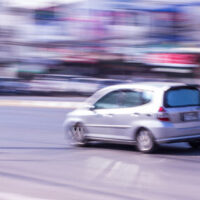Dissecting 6 Common Types of Reckless Driving in Virginia

To ensure safety on roadways across the commonwealth, Virginia enforces rigorous laws against reckless driving and equivalently hazardous behavior. Under Virginia law, reckless driving generally occurs when a driver places other people or property in jeopardy of harm.
On top of this general standard, Virginia law also features an assortment of specific laws against reckless driving. From passing certain vehicles to excessive speeding, these reckless driving laws help ensure that drivers operate their vehicles in a reasonable manner.
When a driver disregards Virginia law and commits reckless driving, they can face misdemeanor or felony charges. If convicted, the reckless driver can face various criminal penalties, up to and including prison or jail time, steep fines, and driver’s license suspension or revocation.
In order to avoid these criminal penalties, all drivers in Virginia should avoid engaging in any of the following six common types of reckless driving offenses.
- Grossly Exceeding the Speed Limit
Code of Virginia Section 46.2-862 establishes that reckless driving occurs when a person exceeds the speed limit in a gross fashion. In exact terms, a person commits reckless driving if they operate a vehicle:
- 20 miles per hour or more above the posted speed limit; or
- 80 miles per hour or more regardless of the posted speed limit.
- Driving too Fast for Highway Conditions
Code of Virginia Section 46.2-861 categorizes it as reckless driving when a person drives unreasonably fast in light of all applicable circumstances. This section addresses highway, traffic, and weather conditions, regardless of the posted speed limit. If these conditions indicate that drivers should proceed slowly and cautiously, drivers must comply.
- Failing to Use Signals Properly
Code of Virginia Section 46.2-860 classifies it as reckless driving when a person fails to use their signals properly. Specifically, drivers must use their vehicle signals when they are turning, partially turning, slowing down, or stopping.
- Passing a Stopped School Bus
Code of Virginia Section 46.2-859 makes it a reckless driving offense to pass a stopped school bus. Outside of certain exceptions, drivers must refrain from passing school buses that are picking up or dropping off:
- Children;
- Elderly adults;
- Mentally impaired individuals; or
- Physically disabled individuals.
- Driving with Obstructed View or Impaired Control
Code of Virginia Section 46.2-855 classifies it as reckless driving to operate vehicle with an obstructed view or impaired control. This section prevents drivers from overloading their vehicles or driving with too many passengers. If the cargo or passengers interfere with the driver’s view or control, then it qualifies as reckless driving.
- Driving with Faulty Brakes
Code of Virginia Section 46.2-853 makes it a reckless driving offense to operate a vehicle with faulty brakes. Whether a vehicle’s brakes are inadequate or simply improperly adjusted, it does not matter. This section requires drivers to ensure their vehicle has proper braking capabilities.
Let Us Help You Today
If you have legal questions about reckless driving in Virginia, it can be immensely productive to contact a seasoned criminal defense attorney. The Winchester reckless driving attorneys at Simms Showers LLP know how to defend against a myriad of criminal charges. If you need legal help with criminal defense, contact us today for a free initial consultation.
https://www.simmsshowerslaw.com/two-virginia-drivers-charged-for-reckless-driving-in-fatal-accident/
